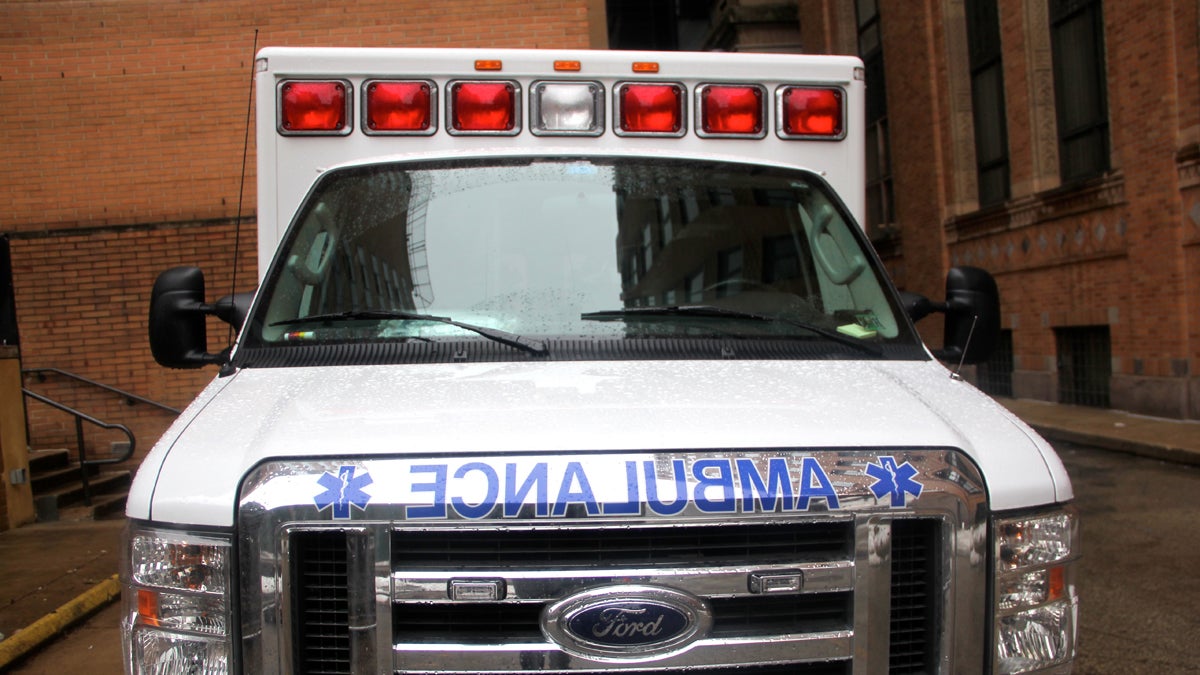U.S. investigators continue crackdown on Philly ambulance Medicare swindles

Since 2011, 30 fraud suspects linked to eight different Philadelphia-area ambulance companies have been arrested.(Emma Lee/WHYY)
It’s safe to say, Medicare insurance billing fraud connected to the Philadelphia ambulance industry has hit an epidemic level.
Since 2011, 30 fraud suspects linked to eight different companies have been arrested.
Twenty-one of those have resulted in convictions, and the sentences handed down total approximately 60 years worth of prison time.
The court has ordered more that $20 million in restitution to replenish what was bilked from Medicare.
“We’ve seized bank accounts, ambulances, assets; we want to ride these people out of town and just leave the honest providers to provide needed, valuable services,” said Nick DiGiulio, lead investigator for the Department of Health and Human Services – Office of Inspector General.
“It’s a full, concerted effort with the FBI, the U.S. attorney’s office and the inspector general,” he said.
The scheme works like this: Ambulances in the region pick up dialysis patients who visit their clinics for treatment at least three times a week, but who otherwise don’t need a ride. The services charge Medicare $400 for each trip, then kick some of that money back to patients.
Each patient could potentially be worth up to $60.000 per year, according to DiGiulio. The companies share lists of potential clients with each other, and work to spread out these claims among themselves in order to stay off the federal investigators’ radar.
To combat this, in January 2014, the Centers for Medicare and Medicaid Services set a moratorium in place, which blocks any new Medicare ambulance companies from opening in the area, until the agencies can identify the legitimate companies.
It was just renewed in February for another six months.
“What the moratorium does is allows us to focus on the companies that currently exist,” said DiGiulio. “We know how they operate, we know that they share patient lists of those who don’t need ambulance services, and we can track those patients and see what companies they’re going to.”
DiGiulio said his office has also relied on informants, and that Medicare program contractors have done more than 80 site audits on regional ambulance companies. In all, his office has seen a slow-down in fraud attempts. Still, he said, the health care system is a difficult one to monitor – and unfortunately one that draws cheaters because it’s so lucrative.
“Medicare is a system of trust,” said DiGiulio. “They process and pay millions of claims every day, you can’t review every single claim as it comes in. That’s why it’s so open to fraud.”
WHYY is your source for fact-based, in-depth journalism and information. As a nonprofit organization, we rely on financial support from readers like you. Please give today.




